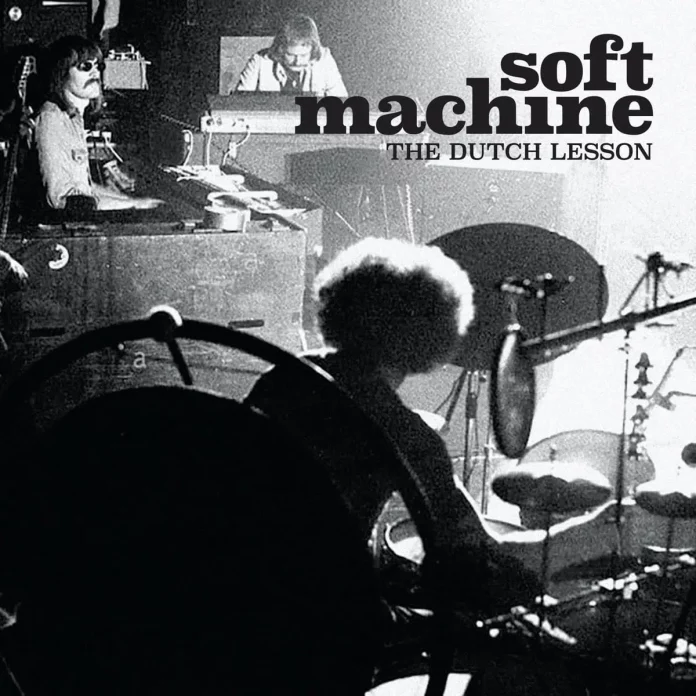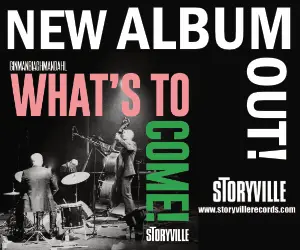Soft Machine had a history of playing The Netherlands from as far back as 1967. In October 1973, hot on the heels of their sixth album, the Softs played De Lantaren, a relatively small venue in Rotterdam. Record-store owner Bert Boogaard was in attendance that night and recorded the concert on his Uher portable tape machine. He was situated in the front row which would explain why John Marshall’s drums suffer here from what is euphemistically described in the sleeve notes as “occasional saturation”.
In fact, the recording is actually enhanced by this level of percussion since it affords the listener a real sense both of Marshall’s dynamic power and a feeling of being in the room. Listen to Marshall’s dramatic entrance on the opener, Stanley Stamps Gibbon Album, or the surgical precision of the snare on Riff II. The drumming on Gesolreut is stupendous, virtually leaping out of the speakers.
The title of Karl Jenkins’ Down The Road from Seven (CBS, 1973) is a nod to his time in Graham Collier’s Sextet and the album Down Another Road (Fontana, 1969). Incidentally, Jenkins solos here on (uncredited) recorder, about as rare an instrument to be found in jazz as the oboe. Ealing Comedy features a satisfyingly meaty solo by Roy Babbington on six-string bass guitar. Mike Ratledge’s 37½, from Six (CBS, 1973) is delivered at a frighteningly fast pace, at least double the speed of its original studio version.
The majority of the tracks on the album are gleaned from Six and a couple from Seven but there’s a preview of Hazard Profile from their next album Bundles (Harvest, 1974). The album’s title obliquely references the final two tracks on Seven (The German Lesson and The French Lesson).
Soft Machine in the early to mid-70s comprised a breakaway faction from Nucleus of which Jenkins and Marshall were founder members. Babbington was also a member of Nucleus for a time. Following Marshall into Soft Machine (Marshall had joined during the recording of Fifth, CBS 1972), Jenkins took a leading role from the outset, contributing significantly as co-composer and multi-instrumentalist.
The Softs’ rise into the jazz stratosphere – this distinction is necessary since their first two albums were essentially psych-rock – culminated in the band being voted top small group in the 1974 Melody Maker jazz polls. In that same poll, Ratledge, Jenkins, Marshall and Babbington were voted into top positions on their respective instruments.
In the previous MM jazz poll of 1973, Six was voted LP of the Year. John Marshall, the longest surviving member of Soft Machine, is predominant both on the album and on its cover and it’s a fitting tribute to the newly retired drummer. The Dutch Lesson captures the band at the height of their powers.
Discography
CD1: Stanley Stamps Gibbon Album; Between; The Soft Weed Factor; Lefty; Gesolreut; EPV; Down The Road; Ealing Comedy; 37½; J.S.M.; Riff II (65.24)
CD2: Chloe And The Pirates; Hazard Profile; Improvisation; Gesolreut Jam (36.54)
Mike Ratledge (elp, org); Karl Jenkins (ss, bar, oboe, elp, recorder); Roy Babbington (elb); John Marshall (d). Rotterdam, 26 October 1973.
Cuneiform Rune 490/491
















